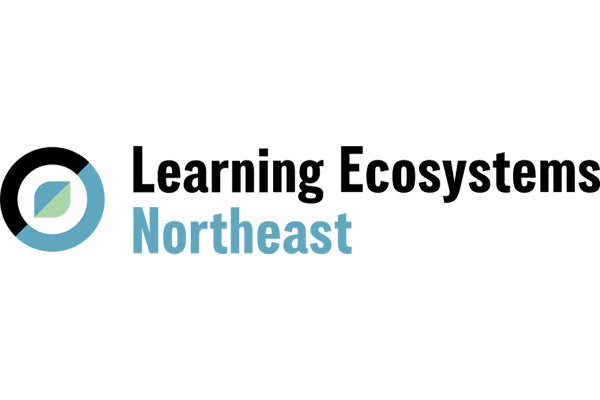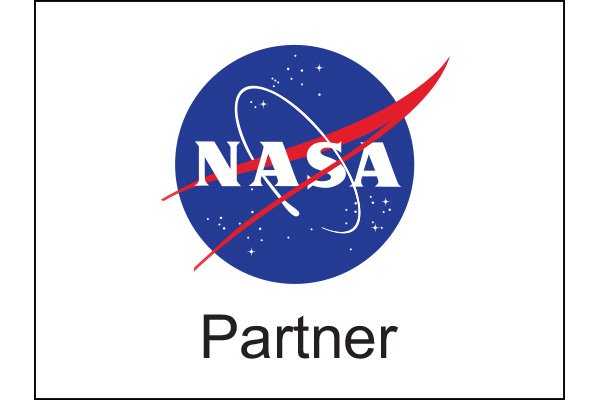Fall Learning Theme: Into the Woods
Measuring and understanding forest change.
Get excited to explore one of our area's most beautiful and abundant resources — forests! Brimming with life, these extraordinary and resilient ecosystems provide a rich context for learning about local and global impacts of climate change and also help learners develop a connection to nature. This fall we are highlighting a variety of pathways for youth to engage with forests — in schools, in communities, and beyond. We’re also connecting the adults in these spaces with each other and with resources to support learning.
Project Goals:
- Build background knowledge related to climate-driven changes to forests.
- Immerse educators in learning experiences focused on measuring and understanding forest change that can be applied in formal and informal learning environments.
- Gather resources from NASA to support data and climate learning.
- Build comfort with gathering, contributing, analyzing and sharing data.
- Connect local educators, practitioners, and learning experience designers who are supporting learning around forests in and out of school
- Support the development of youth agency around STEM practices and concepts through place-based learning experiences.
Into the woods
This fall we will be exploring the vibrant forests of the Northeast. Our forests provide food, shelter, shade, clean air, and so much more. These resilient ecosystems also indicate changes to our climate and increase resilience through their capacity to sequester carbon and cool our planet.
We are working to bring youth and educators together to help understand, measure, and document how our local forests are impacted by and adapting to climate change. Learn about and experience different ways youth can investigate forests no matter what learning context they are in.
Through our network of organizations, practitioners, and learning experience designers, we offer a mixture of virtual and in person experiences to meet you where you are in your journey of learning about and exploring all that forests have to offer.
We have compiled a list of opportunities below. Please note the list will be updated continually. You can take on as little or as much as you wish, mix and match — it is a woodland buffet!
Check back often for updates!
Educator Information Sessions
Ash Protection Community Science Challenge Info Session:
Ash trees, specifically brown ash, are critically important to wetland ecosystems and to Wabanaki communities. Learn how youth can join a coordinated effort across the region to protect this species from the threats of climate change and invasive forest pests by contributing data to the Ash Protection Collaboration Collaboration Across Wabanakik.
This session was for information about standards-aligned curriculum resources to support learning through community science, confidence in supporting students in carrying out the project protocols, excitement about doing community science, and connections to a network of educators and project staff to support you.
While this information session has already concluded, you can still get the recording, slides, and resources from this session, by registering for the Ash Protection Community Science Challenge.
4-H Tick Project Information Session (concluded):
The 4-H Tick Project is a community science project engaging K-12 youth and educators in partnership with 4-H Youth Development, UMaine Cooperative Extension Tick Lab, and the Maine Forest Tick Survey. The project provides youth an opportunity to explore the impacts of climate change and contribute data to a research project established to determine how forest land management practices impact tick populations and disease risk across Maine. Educators will receive sampling materials, activity guides/lesson plans, and support carrying out the project protocols.
Field Days:
Join your local CLE in the field to observe and document changes in local forests. Learn how to identify ash trees, spot signs of invasive emerald ash borer, and contribute to the Ash Protection Collaboration Across Wabanakik.
Meet ups have concluded.
Informal Forest Health Kit:
This kit is full of hands-on forest-related activities and information designed for use by families and in informal learning spaces. Learn how trees provide a window into climate history, “read” a tree cookie, make a “tree tale” bracelet based on growth ring data, learn how to ID trees, and more!
Email Molly to be added to the waitlist.
Virtual events for youth
Ash Protection Community Science Challenge::
The Ash Protection Collaboration Across Wabanakik needs your help defending invaluable ash trees from the impacts of climate change and invasive species. Join this effort by finding and inventorying the ash trees in your area and sending in your data. In addition to the educator support listed above, this challenge includes opportunities for youth to connect to the project leaders and share their observations and questions. Register for the Ash Protection Challenge here.
Speaker Events:
- The Wildlife Tree Read Aloud and Q & A (two options)
- Join the Maine State Library for a read aloud session and conversation with Peter and Deborah Emery as they read The Wildlife Tree and share information about a seemingly dead tree that supports a multitude of wildlife.
The Fall Learning Theme is a product of Learning Ecosystems Northeast (LENE), a NASA funded collaborative focused on building partnerships and pathways that provide youth with opportunities to engage in locally relevant climate connected learning experiences. Many in person events are being co-hosted by Connected Learning Ecosystems (CLE) that are part of the LENE network.
This material is based upon work supported by NASA under grant number NNX16AB94A. Any opinions, findings, and conclusions or recommendations expressed in this material are those of the author(s) and do not necessarily reflect the view of the National Aeronautics and Space Administration (NASA)
Molly Auclair
Contact Molly if you have any questions about Connected Learning Ecosystems.
Meggie Harvey
Contact Meggie if you have any questions about forest health related community science challenges.
Read More
-
![Learning Ecosystems Northeast (LENE): All Systems Go]()
Learning Ecosystems Northeast (LENE): All Systems Go
LENE is a network of peer communities where educators in local regions join forces, committed to empowering the next generation of climate stewards.
Announcements
-
![Oceans of Possibilities]()
Oceans of Possibilities
Experts from across GMRI are providing the Maine State Library system with resources and opportunities to support the 2022 summer reading theme: Oceans of Possibilities.
Tidings
-
![Community Science Challenges: Fall 2022]()
Community Science Challenges: Fall 2022
We just wrapped up our community science challenges for the fall of 2022, where we saw 1725 students help contribute to real, ongoing research efforts. …
Announcements
-
![Vernal Pool Spring Blitz]()
Vernal Pool Spring Blitz
During peak vernal pool season this spring, our Education team is offering virtual and in-person learning experiences focused on bringing young people and educators together …
Tidings





